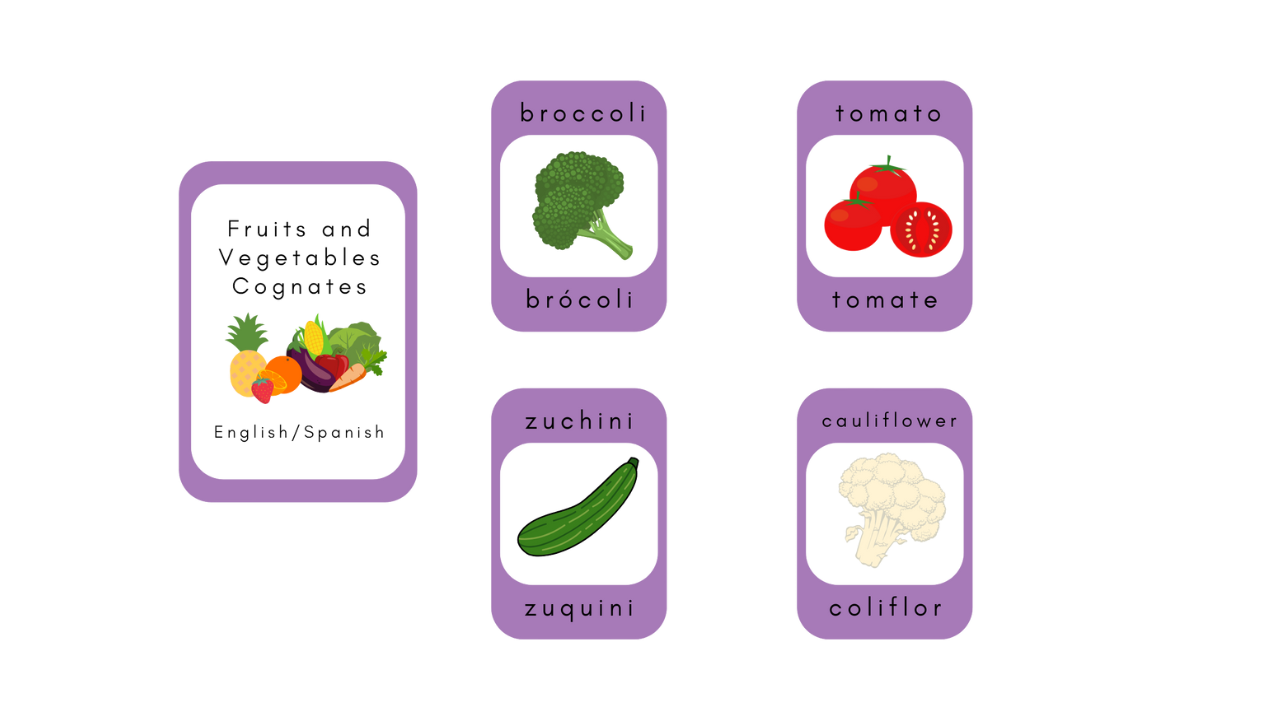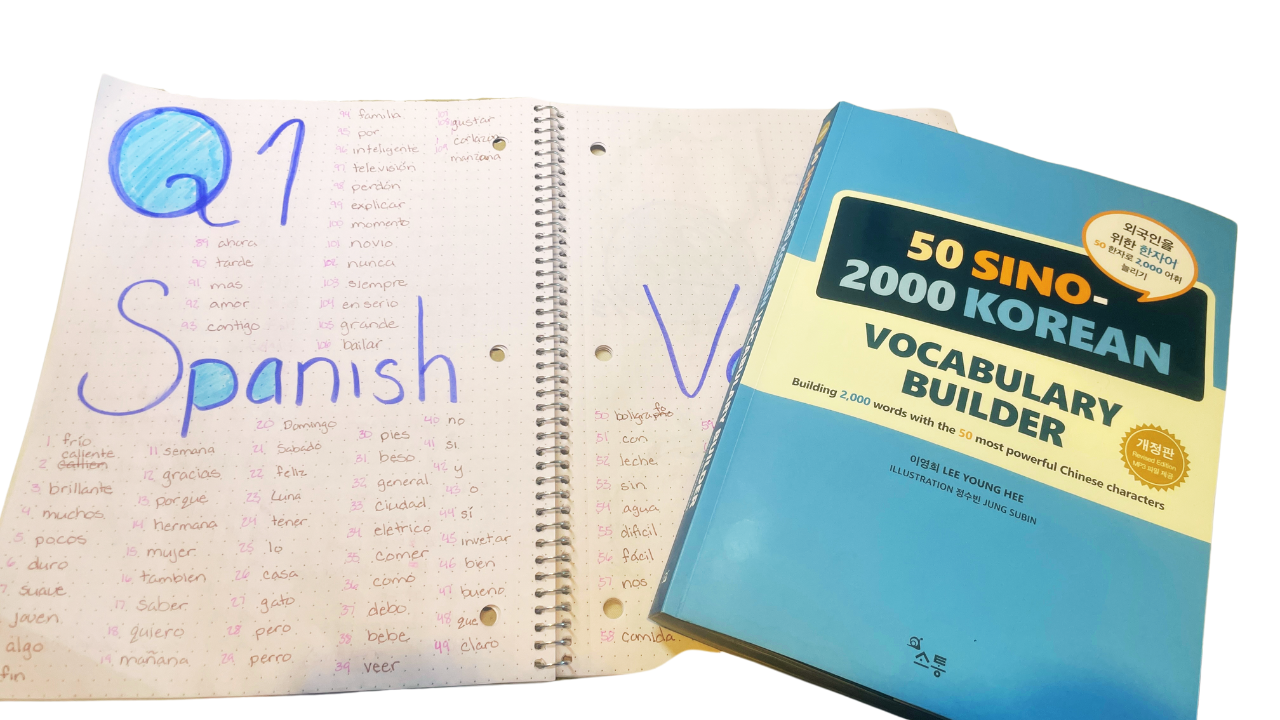5 Things I’m Glad I Knew Before Learning Spanish | Tips for Language Learners
5 Things I’m Glad I Knew Before Learning Spanish (After Korean)
Learning a new language is a journey that comes with its own challenges, and let me tell you, I’ve been there—many times! I first tried learning Spanish in high school, but each attempt felt like an uphill battle. The grammar was confusing, the vocabulary seemed endless, and I found it difficult to stick with it. After several unsuccessful attempts, I left Spanish behind, convinced it was too difficult.
Fast forward a few years, and I found myself on a completely different language-learning journey— Korean. I poured time and energy into learning a language that, was far more challenging than Spanish. But after investing so much into Korean, I came to realize something: language learning, no matter the language, follows many of the same patterns, and the struggles I faced with Spanish weren’t unique to it.
Revisiting Spanish after my experience with Korean, things started clicking. Korean not only improved my overall language-learning skills but also gave me the tools and mindset to tackle Spanish in a new way. Understanding how languages are structured and how to approach learning them has completely shifted my perspective. Plus, having a strong ‘why’—wanting to travel to Spanish-speaking countries—keeps me motivated and focused, unlike my previous attempts when I just felt like I “had to” learn it because it was required in school.
Now that I’m learning Spanish again, here are five things I’m glad I knew before diving back in. These insights have made my language learning journey smoother and more enjoyable, and I hope they’ll help you too!
1) Listening and Shadowing Are Everything
When I started learning Korean, I quickly realized that listening and shadowing were the keys to improving quickly. At first, it felt awkward, but once I committed to mimicking native speakers and immersing myself in listening practice, my understanding and speaking skills skyrocketed. The same principle applies to Spanish.
Listening to native speakers and shadowing their pronunciation and intonation has been one of the most effective techniques I’ve used. Whether listening to Spanish podcasts, watching movies, or repeating phrases from language lessons, I’ve found that hearing and repeating what you hear accelerates your speaking ability. It’s no longer about memorizing vocabulary—it's about truly internalizing the sounds of the language.
So, if you’re learning Spanish, make listening and shadowing a priority. The more you expose yourself to the language, the easier it becomes to replicate the rhythms and patterns.
2) Spanish and English Have Many Cognates
One of the perks of learning Spanish as an English speaker is that Spanish and English share many cognates—words that look and sound similar in both languages and share the same meaning. These cognates make it easier to expand your vocabulary quickly. For example, words like “familia” (family), “hospital”, and “information” are nearly identical in both languages.
This made Spanish feel more accessible when I revisited it. I had already encountered many of these words in everyday contexts, and knowing them boosted my confidence. Once you start recognizing the cognates, the process of learning new words becomes much easier, and you’ll be surprised by how much of the language you can understand just by relating it to what you already know in English.
3) Spanish Conjugation is Easier Than Korean Conjugation
Korean grammar is famously tricky, especially when it comes to conjugation. In Korean, verbs change depending on politeness levels, tenses, and many other factors, which can feel overwhelming. Coming back to Spanish, I was pleasantly surprised to find that Spanish conjugation was much easier to grasp.
Spanish conjugation follows a clear pattern, and while there are irregular verbs, the rules are fairly straightforward compared to Korean. Once I learned the regular verb endings for -ar, -er, and -ir verbs, it became much easier to form sentences. Of course, like with any language, practice is key, but I found that learning Spanish conjugation was far less daunting than tackling Korean conjugation. It’s refreshing to approach a language with fewer rules to remember and more structure to follow.
4) Speaking Slowly Is Better Than Never Speaking
In my early attempts at learning Spanish, I avoided speaking because I felt like I wasn’t fluent enough to hold a conversation. However, my Korean learning experience taught me that speaking slowly is way more beneficial than avoiding speaking altogether. Language learners often think they need to speak fast and fluently to be understood, but that’s not the case. Speaking slowly and clearly gives you more time to think and makes communication easier for both you and your listener.
When I started practicing Spanish again, I gave myself permission to speak slowly. I allowed myself to make mistakes and not worry about sounding perfect. And guess what? My confidence is on the rise! Slowly but surely, I was able to put my thoughts into words. Remember, the goal is communication, not perfection. So, don’t be afraid to speak slowly and work through your sentences—it’s all part of the process!
5) Rolling ‘R’s Is Not a Requirement
Let’s face it: rolling your ‘r’s in Spanish can be intimidating. I know this because I dreaded it when I first started. But here’s the thing—rolling your ‘r’s is not a requirement for speaking Spanish fluently. While it’s unquestionably a hallmark of native pronunciation, you can still speak Spanish clearly and confidently without it.
The key is to practice pronunciation, focus on being understood, and let your speaking flow without obsessing over it. You’ll be surprised how much you can accomplish in Spanish even without perfect “r” rolls!
Embrace the Journey—Even If You’ve Given Up on a Language Before
Language learning is not always a linear path. If you’ve tried learning Spanish before and gave up, or if you’ve forgotten what you’ve learned, don’t be discouraged. I’ve been there! What I’ve learned from my time learning Korean is that you are better equipped to tackle new languages now—whether it’s revisiting Spanish, picking up a new language, or even dusting off an old one. Your ability to learn languages is a skill that gets stronger over time.
Different Languages. Different Levels. Same Study Method
So, if you’re struggling with a language you once gave up on, consider how your past language experience can help you. Reflect on what you learned from your previous attempts and use it to your advantage. You’ll find that, although Spanish (or any language) may still be challenging, you are more prepared to handle it than you were before. Stay patient, stay motivated, and keep going—because the rewards of speaking another language are well worth the effort!
What language(s) have you struggled with?





The key to speaking a new language and the best language-learning tip you will ever receive is to start speaking early. As in, today, right now.